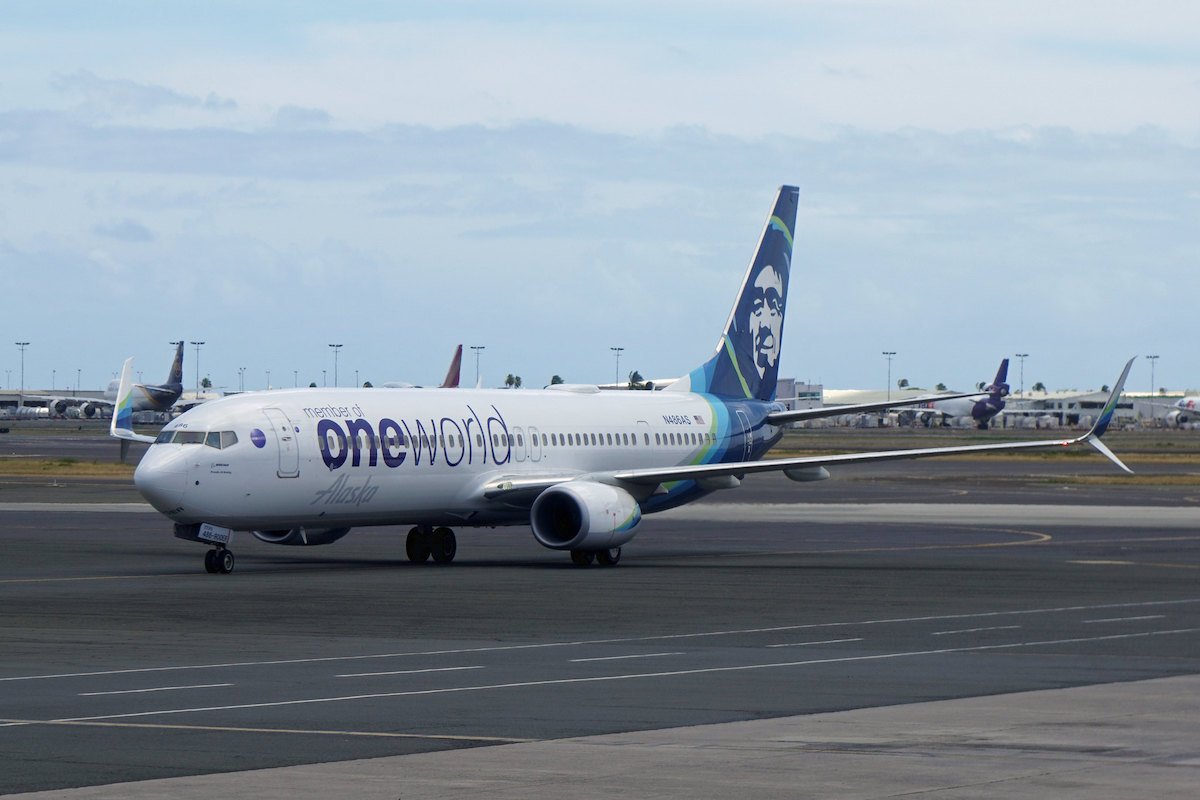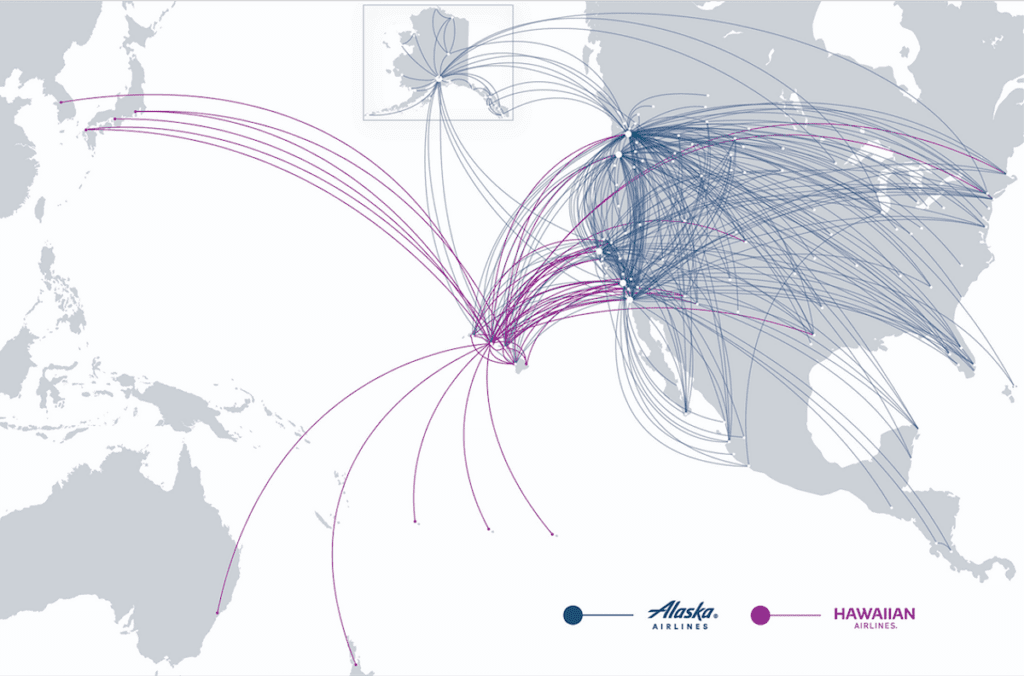Alaska-Hawaiian Merger Faces a Justice Department Wary of Airline Combos

Skift Take
Alaska Air Group CEO Ben Minicucci gave an eerily familiar line when asked about his view on U.S. government approval of the carrier's proposed $1.9 billion merger with Hawaiian Airlines.
“I think this is a pro-consumer combination," he told analysts Sunday. "It’s pro-competitive, it makes us larger to compete against the Big Four [American, Delta, Southwest, and United] … So we’re hopeful it will be seen in a positive light.”
Sound familiar? It's almost identical to the case made by JetBlue Airways CEO Robin Hayes when he was bidding for Spirit Airlines last year. "The combination of JetBlue and Spirit would [benefit] competition by creating the fifth-largest domestic airline," Hayes said that April.
We all know how the JetBlue-Spirit story went. The U.S. Justice Department challenged the $3.8 billion merger in April. The trial in the regulator's suit to block the combination is underway in Boston and expected to wrap soon. Then the industry waits for a judge's opinion.
Alaska and Hawaiian have yet not discussed their proposed deal, unveiled publicly Sunday, with the government, said Minicucci.
The Biden Administration's Anti-Consolidation Stance
The Biden Justice Department has taken a tough stance against consolidation. In a July 2021 executive order, the president called it out for contributing to the increase in fees.
The administration scored a win when the Justice Department sued and won its case to unwind the American and JetBlue alliance in the northeast. In the ruling, the judge wrote that U.S. antitrust law only considers a reduction in the number of independent competitors in a market and not the competitive benefits of a so-called stronger competitor; American and JetBlue made the latter case, that together they offered passengers a strong alternative to Delta and United.
Regulators elsewhere, including in Europe, have also taken a tougher stance towards airline mergers.
"There’s no relationship between what we’re doing and what’s happening with Spirit and JetBlue," Minicucci said when questioned by analysts.
He said the Alaska and Hawaiian only have 12 overlapping routes, and added that the two networks are "complementary."

Alaska and Hawaiian together would have a nearly 40% share of seats between Hawaii and the continental U.S., including the state of Alaska, according to Cirium Diio data. The next largest airline, United, has a nearly 23% share.
"Given that the route networks of Alaska and Hawaiian wouldn't lead to the same concentration as the networks of say, American and JetBlue or JetBlue and Spirit, the probability is higher that the Alaska-Hawaiian deal would go through," said Saikat Chaudhuri, a director at the University of California, Berkeley’s Haas School of Business and College of Engineering.
A 'Unique' Airline Merger
When two U.S. airlines merge, one brand has almost always disappeared into the other brand. That was what happened with Delta and Northwest Airlines in 2009, United and Continental Airlines in 2010, and American and US Airways in 2013. In fact, Alaska is the outlier that purchased an airline — regional Horizon Air in 1986 — and continues to fly the brand.
That is, in effect, what Alaska wants to do with Hawaiian but with a twist. It will keep the standalone Hawaiian brand for customers but merge everything else "behind the curtain," as Minicucci put it. That includes operating certificates, labor groups, and loyalty programs.
"It’s unique," he told analysts. "Hotels, [and] other industries have had this approach. When we look at the history and legacy of each one of these brands … the loyalty they’ve engendered … this is the best approach to ensure maximum success with customers, with employees, with communities we serve.”
Marriott, for example, has a similar structure with streamlined union contracts across multiple brands.
Globally, multiple airline brands in a single group is not unusual. That's how each major European airline group operates; the Lufthansa Group even has at least nine unique brands each with their own certificate: Air Dolomiti, Austrian, Brussels, Discover, Eurowings, Lufthansa, Lufthansa City, Lufthansa Cityline, and Swiss.
Two brands for one airline will cost Alaska. The airline expects $60 million in additional labor costs when it combines both carriers' workforces onto single contracts. But those added costs are still far lower than the estimated $235 million in net revenue synergies from the combination.
Hawaiian is a Good Deal for Alaska
“The strategic case is the hub economics in the Hawaii market at a great valuation," Alaska Chief Financial Officer Shane Tackett said Sunday.
And he's right. Alaska will pay $18 per share for Hawaiian. That's three-times the price of $4.49 per share at close on December 1. However, Hawaiian shares traded at around the $30 mark as recently as late 2019. They last traded at over $18 per share in May 2022.
While Hawaiian is struggling today, at some point travelers from Japan will return to Hawaii. Pratt & Whitney will get its geared turbofan engines back in the air. And demand to Maui will recover. All of those will benefit Hawaiian and make it a much more attractive business, even with the increase in competition to Hawaii that it has seen Southwest Airlines entered the market in 2019.
Alaska's purchase price stands in stark contrast to JetBlue's agreement to pay $33.50 per share for Spirit. That’s 1.26 times the value of the discounter’s shares today but with debt totals a lofty $3.8 billion. And Spirit, with numerous challenges ahead of it, does not add a significant new geography to JetBlue’s map nor is it expected to turn a profit this year or next.
And, price aside, the deal provides Alaska with growth opportunities outside of its congested hubs along the mainland U.S. West Coast — Los Angeles, Portland, San Francisco, and Seattle — in Honolulu.
Alaska intends to buy Hawaiian with cash on hand and an as-yet-undisclosed amount of new debt. Approval from Hawaiian shareholders will be sought in the first quarter and, if the Justice Department approves the deal, close is expected within 18 months — or by June 2025.




